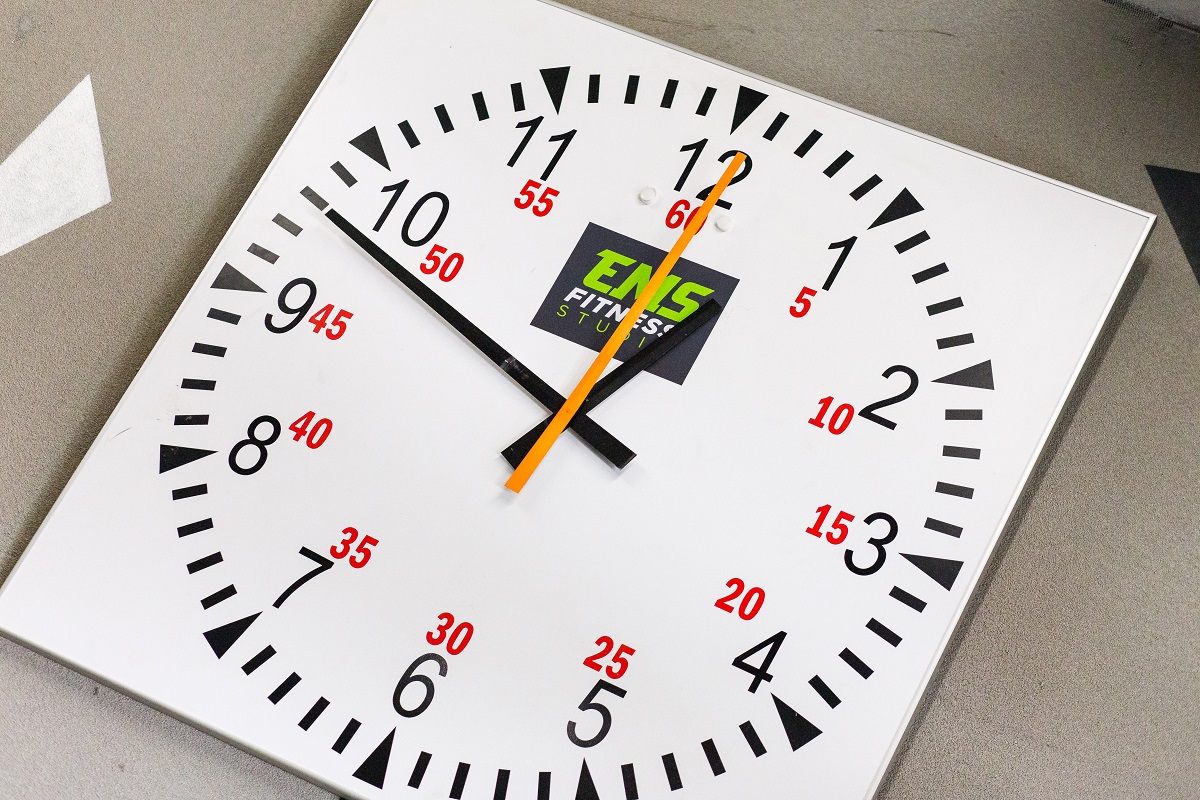Today’s world is one of instant gratification.
When we want something – we can get it. From downloading the television and films we want to watch on Prime to ordering food straight to our front door with Deliveroo.
Our culture is on-demand, right here, right now, and available round the clock.
Is it any surprise that around a third of people who drop out of exercise classes claim that they simply don’t have any time?
The problem usually isn’t time, however.
It’s usually how we’re making use of the time available to us. As explored by the famous 1957 book, Parkinson’s Laws, which discusses two of the key ideas you need to understand if you’re going to get a handle on your time management.
First one is that your work (or play or other activity) always expands to fill the time allotted for its completion.
If you put down a set amount of time for any activity, you will subconsciously stretch that activity out until it fills the allotted time. Of course, you’ve actually managed to waste time to make sure you spend all the time you’ve made available to yourself.
For instance, you might be given 3 weeks to complete a homework assignment as a student – you would have it ready in this time. However, if you were given three days, the result would probably be the same and you would have invested a whole lot less time.
The less important the task – the more time we spend on it – and the more important the task – the less time we spend on it.
When it comes to prioritising tasks, we always tend to go for the easiest first, replacing the heavier and more important tasks by the lighter and friendlier jobs. We find that we simply must tidy our kitchen, do our laundry, wash the bathroom floor – all before we can even start on our tax returns.
This is very true of people with their training schedule. People will often delay their training to the very end of the day and then claim that they are too tired to work out or exercise – or that they’ll do it first thing in the morning.
What’s the answer?
Ultimately you must make time to invest in yourself. And in your physical activity.
If you don’t put in the time and effort to stay healthy today, then you’ll have to pay in time and money in later life. Performing a little moderate intensity exercise for only 15 minutes a day (over a period of years) can reduce the risk of mortality by 14% and extend your life expectancy by around 3 years.
And the more time you invest in exercise and fitness – the greater the benefit to your long-term health prospects.
The important action is to make time, stick to a disciplined plan and show up week after week.
Which is why many people like to train using exercise classes or even personal trainers at set times every week. This makes them accountable – and puts dates in their diary that are hard to miss. One of the biggest factors in showing up is consistency.
And if you want to work with one of the top boutique gyms in Norfolk, with loads of cool classes and personal trainers – then give us a call at EMS Fitness.

